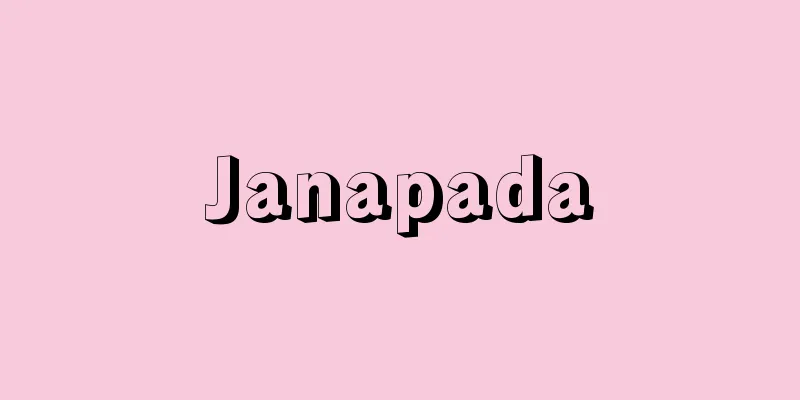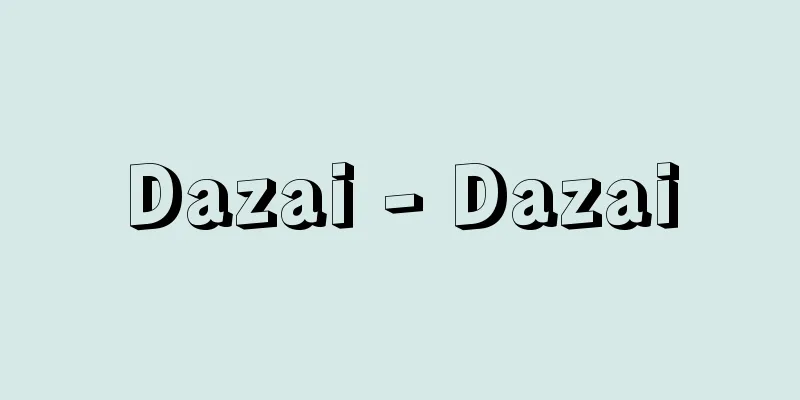chan (English spelling)

|
…The original word dhyāna means to think quietly, and its slang form jhāna was pronounced jhān in northwestern India, and was written as ゼン in Chinese characters. The Chinese characters for ゼン are pronounced chán in modern Chinese and zen in Japan, and both are used in the West. Ancient Indian civilization arose along with the practice of meditation. … *Some of the terminology explanations that mention "chán" are listed below. Source | Heibonsha World Encyclopedia 2nd Edition | Information |
|
…原語dhyānaは,静かに考える意で,その俗語形jhānaが西北インドでjhānと発音されていたのを,中国の漢字で禅と表記したもの。禅という漢字は,現在の中国音ではchán,日本ではzenと発音され,欧米では両者を併用する。 古代インド文明は,瞑想の実践とともに起こる。… ※「chán」について言及している用語解説の一部を掲載しています。 出典|株式会社平凡社世界大百科事典 第2版について | 情報 |
>>: 《Champs magnétiques》 (English notation) Champs magnetiques
Recommend
Embryology - embryology
Embryology is the study of the individual develop...
Neighborhood Association - Choinaikai
A typical Japanese community group established wi...
Vocational education - vocational education
This refers to education that is aimed at providi...
Sedum ewersii (English spelling) Sedumewersii
… [Hiroshi Yuasa]. … *Some of the terminology tha...
Oxford movement
A revival movement in the Church of England. It b...
Mazon, A. (English spelling) MazonA
...In Poland, Aleksander Brückner (1856-1939), au...
Mogami clan
A prestigious samurai family that is said to be t...
Ryogen
A Tendai Buddhist monk in the mid-Heian period. H...
Ryuju
An Indian Buddhist monk who lived around 150-250. ...
Teratogenicity
...However, the Thalidomide incident prompted pha...
Wood wax lacquer - Kijiro-nuri
...During the Edo period, the techniques also div...
MyEroBar
A Czech female writer. Initially, she wrote works ...
Bunyoro Kingdom
A kingdom that existed in northwestern Uganda, Eas...
Pastor - Poimēn (English spelling)
The title of a clergyman in the Protestant church....
Cecil, William, 1st Baron Burghley
Born 13 September 1520, Bourne, Lincolnshire [Died...









